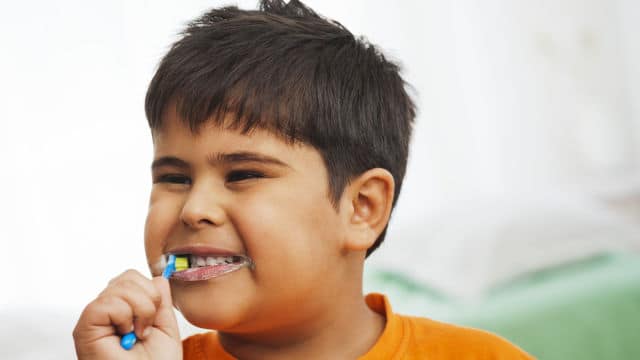-
-

ADULT ORTHODONTICS
Should You Use Mouthwash Before or After Brushing?Brushing and flossing are the foundation of a good oral hygiene routine, but mouthwash can also be a useful addition...

SELECTING DENTAL PRODUCTS
Soft Vs. Hard Toothbrush: Which One Should You Use?The toothbrush has come a long way. As the American Dental Association (ADA) notes...
-
Science & Innovation
- Oral Health and Dental Care | Colgate®
- Oral Health
- Common Questions About Mouthwash


Even if you're an old pro at brushing and flossing your teeth, you may not be quite as savvy about mouthwashes, their benefits and the proper way to use them. Mouthwash novices, take notice: This oral care product can provide an extra boost of protection for your gums and teeth. Keep reading to find out more before you add this refreshing step to your regular oral health care routine.
What are the Benefits?
According to the American Dental Association (ADA), mouthwashes can reduce gingivitis, slow down the formation of tartar on your teeth, prevent tooth decay and freshen your breath. Different mouthwashes use different elements to accomplish these tasks, but the common ingredients include antimicrobial agents that kill bacteria in your mouth, fluoride that repairs damaged enamel and astringent salts that cover up bad breath.
Even though brushing and flossing should be your primary methods of fighting against gum disease and cavities, mouthwashes can offer additional protection, and they may be especially beneficial for people who have trouble with brushing and flossing.
Which Comes First?
When it comes to the order of oral care, it doesn't matter whether you use a mouthwash before or after you brush and floss. Instead of focusing on what to pick up first when you're standing at the bathroom sink, simply make sure you're using the proper technique and doing a thorough job of all three.
While various mouthwashes come with different instructions, it's usually best to keep the mouthwash in your mouth for at least 30 seconds and swish it thoroughly to ensure that it comes in contact with all of your teeth.
Can Kids Use Mouthwash?
Young children can be at risk for swallowing their mouthwashes instead of spitting them out, so the ADA warns parents against letting kids age six and younger use mouthwashes with fluoride. However, fluoride mouthwashes can help fight cavities, so it remains a beneficial product for most older kids and adults.
If you're worried that your child will swallow the mouthwash the first time they use it, let them practice swishing with water. Once they get used to keeping the liquid in their mouth without swallowing it, you can switch to the real thing. To make sure they are swishing and holding it in their mouth for the correct period of time, it's helpful to supervise their oral care routine or, better yet, brush, floss and rinse alongside them so they can copy your good habits.
Related Products

Helping dental professionals
More professionals across the world trust Colgate. Find resources, products, and information to give your patients a healthier future











